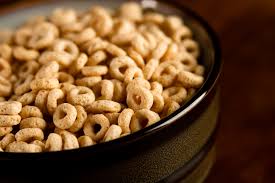You could almost read the disdain dripping from the lips of General Mills (GIS 0.04%) CEO Ken Powell over the failure of his GMO-free Cheerios cereal to "move the needle" on sales. Having given in to pressure applied by the activist group Green America to eliminate genetically modified ingredients from the popular brand, Powell said, in a phone interview with the AP, that there was no discernible boost in sales, they may even have fallen slightly, and it was "what I expected." Moreover, he said, most customers don't even care about the GMO issue.

Because the main ingredient in the cereal is oats, which are already GMO-free, the changes General Mills had to make were in sourcing GMO-free sugar and corn starch. More than half of the U.S. sugar supply comes from sugar beets, 95% of which is grown from Monsanto's GM stock, and 86% of all corn grown in the U.S. is from lab-altered seed as well, so it's not surprising that General Mills says it took more than a year to find replacements for the ingredients in Cheerios.
Yet considering the cereal maker has seemingly since only given grudging support to the initiative, it's also not surprising the results are what they are. While there was a lot of fanfare over the non-GMO claim initially, the cereal maker has done little since to market that fact. It slapped a note on the side of the box that says Cheerios are not made with genetically modified ingredients, but immediately undermined it with an asterisk that says that it still might have some GM contaminants in it because of "cross contact" in manufacturing and shipping. And General Mills also refuses to have any independent, third-party organization certify the cereal is GMO-free.
So consumers may still be leery about buying into the cereal giant's claims, because, as President Ronald Reagan once said, "Trust but verify."

Source: Post Holdings.
Thus, compare Cheerios' packaging to that of Post Holdings' (POST 0.18%) Original Grape-Nuts, which also got a lot of media play for its announcement that it was GMO-free. First, right on the front of the box the cereal maker displays the Non-GMO Project seal, confirming at once that no lab-altered ingredients are used, that its suppliers are GMO-free as well, and they've been independently verified as such. It will be interesting to see whether prominently touting the clean supply chain "moves the needle" for Post Holdings when it next reports earnings.
Whereas Powell reiterated that General Mills has no intention of reformulating any of its other brands, other companies are embracing non-GMO food products. Boulder Brands, for example, announced earlier this month it was converting its Smart Balance buttery spreads to being GMO-free and was exploring ways to make its entire line of products free from such ingredients, while Kellogg says its two biggest Kashi products will be verified by the Non-GMO Project by the end of the year and that all the new foods introduced under the Kashi brand next year will be similarly certified. They'll also be at least 70% organic.
So in essence one can say General Mills set up its experiment to fail. With no belief in the move's importance to customers, a grudging commitment to comply, and marketing that is halfhearted at best -- strange, considering its other high-profile promotional efforts for causes that arouse much more controversy -- it's not surprising the cereal maker hasn't seen the needle move.
But General Mills' failure is not the failure of the GMO-free campaign, and we'll likely continue seeing more food producers excluding ingredients that are increasingly viewed as suspect. Consumer support, not disdain, will be the watchwords for food manufacturers going forward.







